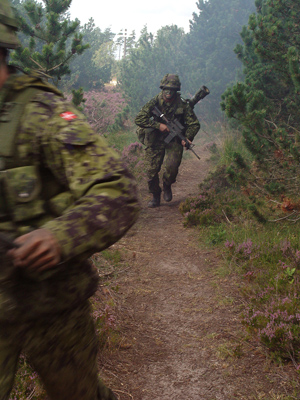
Post Traumatic Stress Disorder
We first became aware of Post Traumatic Stress Disorder (PTSD) during the First World War when soldiers suffered horrific experiences in the trenches and struggled to cope with the aftermath.
Back then their condition was known as shell shock or battle fatigue syndrome. The term ‘post traumatic stress disorder’ was first used after the Vietnam War. PTSD became recognised in 1980 as a mental health condition when it was included in the Diagnostic and Statistical Manual of Mental Disorders which was developed by the American Psychiatric Association.
PTSD can occur after experiencing or witnessing traumatic events, it is not limited to combat but we could see PTSD following:
-
military combat,

- serious road accidents,
- terrorist attacks,
- natural or man-made disasters,
- being held hostage,
- violent deaths, and
- violent personal assaults, such as sexual assault, mugging or robbery.
PTSD may also occur in any other situation where a person feels extreme fear, horror or helplessness. However, it does not usually develop after situations that are upsetting, such as divorces, job losses or failing exams, while these events could be considered upsetting they do not generally cause the traumatic response we find in PTSD.
Someone with PTSD often relives the traumatic event through nightmares and flashbacks. They may also have problems concentrating and sleeping, and feel isolated and detached. These symptoms are often persistent and severe enough to have a significant impact on a person’s day-to-day life.
There are things that can help people with PTSD, therapy these days often performed by specialists in trauma, can be most effective. You can find out more about treatments an detail about PTSD in our larger section here: PTSD
You may find these books very useful
For further information or help with PTSD please see the following links
Internal:
External:





